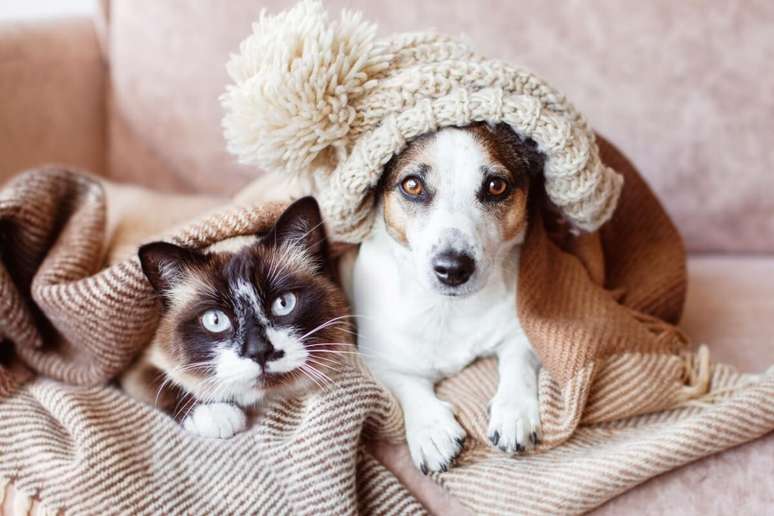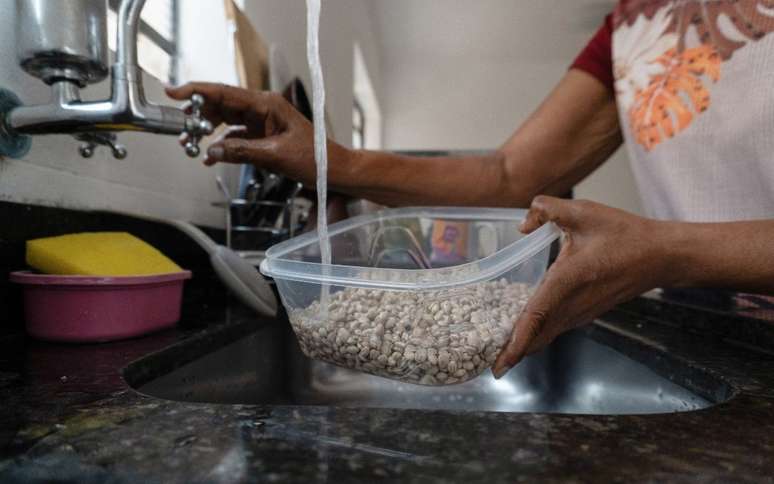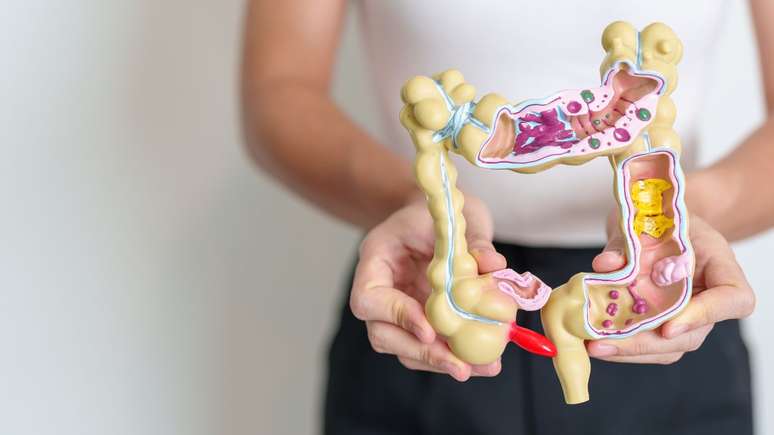See how to protect your pet’s well -being during winter
With the winter approach, the temperatures begin to fall and the rooms become colder. These changes, which directly affect people’s daily life, also affect the health and behavior of dogs and cats. Despite many pets Having the hair, not everyone has the necessary protection to face the intense cold.
The puppies, the elderly, the animals of small or short breeds and those with pre -existing diseases are particularly sensitive to low temperatures. In addition, winter can directly influence the appetite, mood, skin and immune system pets. Therefore, it is essential to adopt preventive measures to ensure animal welfare during this season.
Subsequently, understand how cold can influence the health of dogs and cats and what to do to avoid complications!
1. Respiratory diseases
According to the veterinarian Cinthya Ughiara, respiratory diseases are among the most common at this time of year, both allergic and infectious, caused by viruses or bacteria. For example, they are feline rinatracheitis (feline influence) and canine infectious tracheobronchitis (recto).
“In general, these diseases can cause symptoms such as cough, sneezing, nasal secretion and lack of breath. To treat them, it is necessary [ter] A correct diagnosis and follow-up with the vet. But the most important thing is to prevent visits to the vet every 6 months and always keep the vaccine card PET Updated, “recommends.
2. Joint pain and diseases such as arthrosis
The cold causes muscle contraction and stiffness of the joints, which accentuates animal pain with a history of arthrosis, dysplasia or other osteoarticular diseases. These effects are even more intense in pets elderlywhich of course already have physical limits.
When this happens, it is possible to make difficulties during lifting, walk slowly, reluctant to climb the steps and keep silent. Offer orthopedic beds, keep the site hot and, in some cases, using anti -inflammatory drugs prescribed by a veterinarian, measures are indicated.
3. Hypothermia
Hypothermia occurs when the animal’s body loses more heat than it can produce, drastically decreasing body temperature. It is a serious condition, more common in puppies, elderly, small breeds and short hair. Tremors, muscle rigidity, weakness, confusion and, in extreme cases, coma.
To avoid, it is important to keep the PET Heated, with specific clothes, blankets and protected beds. During the tours, you prefer hottest times and avoid places with wind or humidity.
4. Skin problems
In winter, the skin of dogs and cats tends to become drier due to dry air, hot baths and lesser exposure to the sun. This compromises the natural barrier of skin protection, causing itching, peeling and even fungal or bacterial infections. To prevent, the ideal is to reduce the frequency of the bathrooms, use specific moisturizing products for pets and maintain internal hydration with a balanced diet.

5. Appeal of appetite and weight gain
In the cold, the metabolism of animals tends to accelerate to keep the body warm, which can generate more hunger. At the same time, the reduction of Physical activities contributes to weight gain. This excess, however, has a direct impact on health and can cause heart problems, articulation and even diabetes.
To avoid this, it is essential to maintain a training routine, even if in closed environments, check the amount of feed offered and, if necessary, look for a veterinary guide for an adequate winter diet.
6. Changes in behavior
The cold climate can affect the mood and behavior of pets. Dogs and cats become more introspective, sleep more and move less. Some show signs of discomfort or even irritability. These changes are cold responses, but they can also indicate pain or disease.
During this period, it is recommended to offer thermal comfort, stimulate interactions through toys and observe any exceptional behavior. If the changes persist, it indicates to consult a veterinarian.
7. Low immunity
The cold promotes the fall of immunity, making dogs and cats more vulnerable to infections. The reduction of exposure to the sun, responsible for the synthesis of vitamin D and stress caused by thermal discomfort contributes to this picture. Animals with low immunity get sick more easily and take longer to recover.
To strengthen the defenses of the body, it is essential to maintain the Updated vaccination. According to Cinthya Ughiara, the annual influence vaccine prevents canine infectious tracheobronchitis, a condition that causes an intense and very discomfort cough when PET.
“Although the vaccine does not bring 100% protection against the disease, it is still indicated as it considerably reduces the symptoms presented. The multiple dog vaccine also protects from the influence and the multiple cats vaccine protects from feline rinotracheitis which, in addition to the fall of immunity, causes many spinning and pure nasal exhaust”, the veterinarians explain.
8. Urinary problems
During the winter, many animals reduce water consumption, which can cause urinary tract infections, cystitis and formation of crystals or kidney stones. Cats, by nature, already tend to drink little water, being even more affected at this moment.
Symptoms include urinating out of place, effort when urine and the presence of blood in pee. It is therefore important to encourage them to ingest more water. “An easy and fun way to do it is to offer humid foods, such as those who arrive in sache or cans. For cats, it is extremely important to offer water in wide jars or electric sources, which help circulate the water and love it”, suggests Cinthya Ughiara.
Source: Terra
Ben Stock is a lifestyle journalist and author at Gossipify. He writes about topics such as health, wellness, travel, food and home decor. He provides practical advice and inspiration to improve well-being, keeps readers up to date with latest lifestyle news and trends, known for his engaging writing style, in-depth analysis and unique perspectives.








